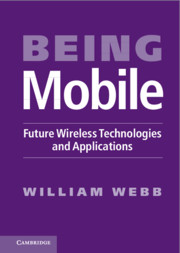Book contents
21 - Universal service
Published online by Cambridge University Press: 05 October 2013
Summary
From a nicety to a necessity
A decade ago the mobile phone was still something of a novelty. Users accepted that coverage was imperfect and were mostly happy to be able to make calls in a few locations. Dropping calls when passing through areas without coverage was accepted as a fact of life when using mobile phones.
Over time people have become increasingly reliant on the mobile. Instead of a tool to allow plans to be adjusted at the last minute when necessary, it has become the means by which peoples' lives get organised. Tradesmen have dispensed with front-office staff because they are able to take calls while working. Businessmen arrange conference calls while travelling on the assumption that they will have mobile coverage. Parents leave children unattended, assuming that they can be contacted via a mobile phone in case of problems. A lack of mobile coverage can be a significant problem to many in their lives.
Areas where there is no coverage are often known as ‘not-spots’ and the complaints about these have increased steadily. An expectation of perfect coverage is growing – both from consumers, who want reliability from their phones, and from governments, which want to provide citizens with services that are increasingly seen as essential. This section looks at why not-spots occur, how they might be resolved and whether they will lead to a mobile service that is increasingly regulated and delivered as an essential utility.
- Type
- Chapter
- Information
- Being MobileFuture Wireless Technologies and Applications, pp. 187 - 195Publisher: Cambridge University PressPrint publication year: 2010



